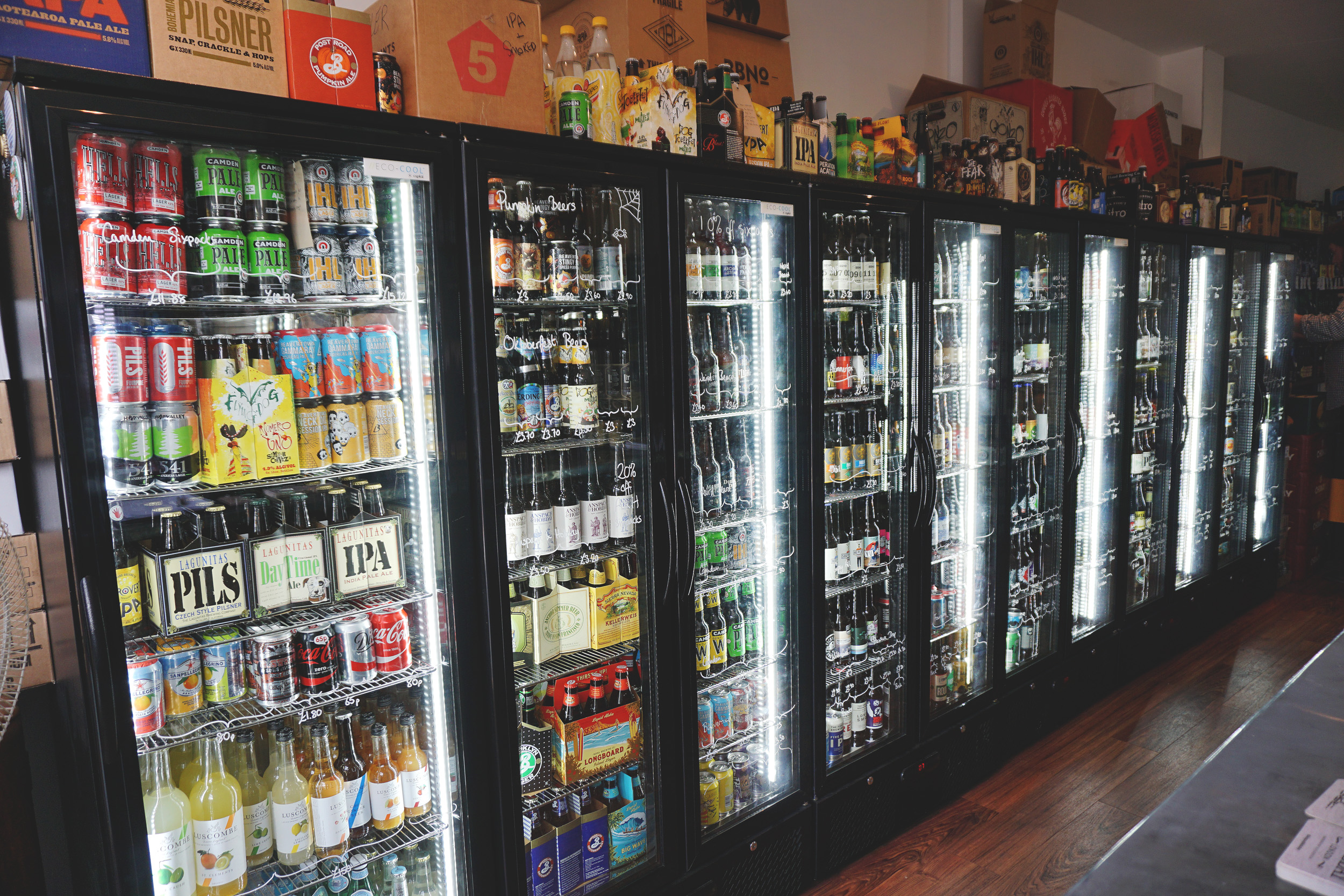
An increasing number of breweries are moving small pack sales into cans. Has this had a noticeable impact on what you are buying in, and selling?
BeerHawk: We took a while to bring cans into our range as a regular line, primarily because we needed to be convinced that the consistent quality was there. Since we listed a range of cans they have sold very well indeed, and I think more breweries will continue this trend, as long as they can overcome these potential quality issues.
Hopology: On the whole it seems the beer tastes as good from a can. There have been some technological advances I’m sure but I suspect the biggest change is that nobody canned decent beer in the UK until recently. However I don’t expect Rochefort 10 in cans yet.
The Brew Testament: Absolutely. This is a trend that we don’t see slowing down. From a retailers point of view, we’re able to easily stack and create presentable displays with these beers. Our customers also love being able to carrying more away with them.
Hop Hideout: Two years ago there was very little UK beer from the indie breweries in cans. I remember Beavertown’s shift from bottles to cans and it took a good six months plus really for people to accept the change – especially for some of the darker beers like Smog Rocket.
I think once the ball started rolling and other UK breweries began canning, especially with the help of social media, it capture people’s imagination and slowly attitudes changed. Drinker’s realised the beer tasted as good!
Let’s be honest a number of US breweries have been canning for a decade or more (Oskar Blues), and in the UK too, but it’s just been big macro lager producers rather than a diverse range that you see now. I’m glad the technology has become available and more accessible for smaller breweries in the UK.
We have a dedicated can fridge which features Moor, Beavertown (Gamma Ray is probably the biggest seller!), Northern Monk Brew Co, Fourpure, Magic Rock, Wild Beer, Dark Star, plus overseas breweries like Anchor, Sierra Nevada, Firestone Walker, Nebraska, Oskar Blues, Pine Street, Devils Canyon, Two Beers, Mikkeller and more!).
I can see more breweries continue but potentially via seasonal or one off releases using mobile canning operations. Or even contract packing with an existing set up locally.
However I can’t see ALL breweries going down the canning route, why would you if you have an existing bottle line that’s performing well. Also I’d hate to have a shop full of cans, bottles of classic Belgian gueuzes are just too beautiful (and practical for the secondary fermentation)!
One good thing though, from a Sheffield perspective, cans are great to take beer out to the countryside – if you’re walking or cycling in the Peak District a can of beer is perfect to suit that lifestyle.
Caps and Taps: Canning is definitely on trend at the moment and, for the most part, we are very pro cans – they are lighter and smaller, so great for storing and transporting, they can also keep beer fresher for longer. However, cans are new to the industry and we have seen a few badly done ones.
We tend to only buy cans from breweries with their own canning lines, which they have had time to learn to use correctly for their beers. We also prefer printed cans. From the point of the consumer a plain can with a label just doesn’t look as good.
Cave Direct/Beer Merchants: Cans are a fantastic way to serve beer, blocking light and cooling quickly to protect the beer. We’ve seen quite a few of our breweries go into can and the response from pubs has been great. Many restaurants are still hesitant but we really hope that will change.
On Beer Merchants we’re buying a lot more cans than we used to – partly we seek them out because they are harder to damage in transit, but it’s more a case that the best breweries see the benefit and are buying canning lines. And we only work with the best. With mobile canning lines and the obvious benefits for haulage and beer protection, there’s no doubt cans will grow – helped by the fact most of them look awesome.
